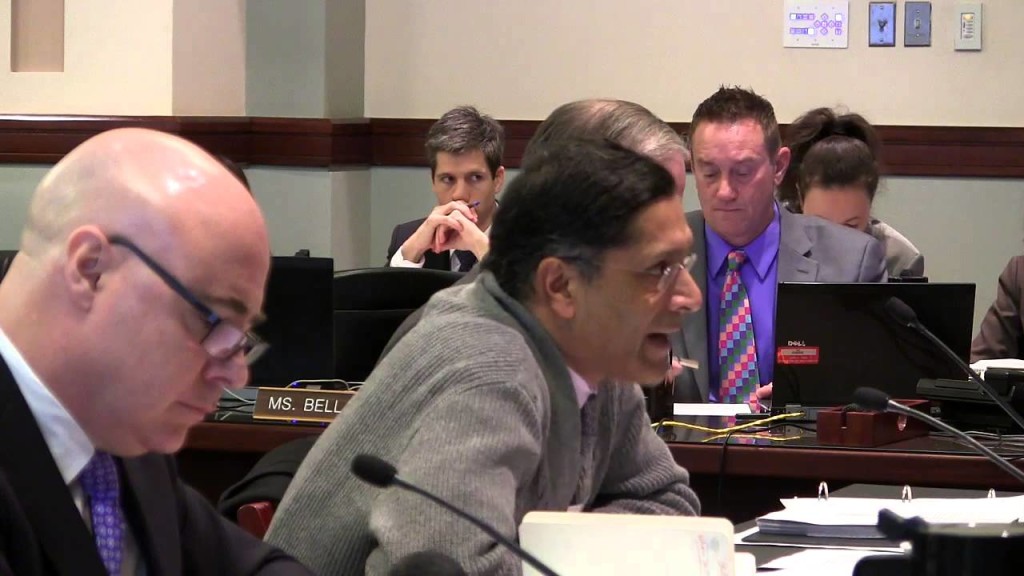Everybody who is somebody in Lutyens’ Delhi wants something to be done to ‘rein in’ and ‘discipline’ Rajya Sabha member Subramanian Swamy. What they don’t recognize is the fact that such mundane ploys as ‘party discipline’ have no bearing on the sovereign entity that Swamy is. He is what he is.
The lords and barons of public discourse are talking about the fissures between the RSS and the Bharatiya Janata Party government (a perennial theme when the BJP is in power), the importance of decorum and decency in public life, Swamy being a loose cannon who should not be allowed to fire indiscriminately, and so on. After the BJP leader’s demand for the removal of Chief Economic Advisor Arvind Subramanian, the talk about Swamy’s ways has reached a crescendo.
Swamy’s attack on Subramanian has cheesed off Finance Minister Arun Jaitley. Swamy tweeted on Wednesday, “Who said to US Cong on 13/3/13 the US should act against India to defend US Pharmaceuticals interests? Arvind Subramanian MoF !! Sack him!!!” This was followed by the second salvo, “Guess who encouraged Congi to become rigid on GST clauses? Jaitley’s economic adviser Arvind Subramanian of Washington DC.”
This came days after the announcement by Reserve Bank of India Governor Raghuram Rajan that he had decided to quit in September when his term ends, a decision that is widely seen as forced upon him by Swamy’s assaults on him. It is also said that his real target was Jaitley, not Rajan. If that is correct, Swamy’s tweets against Subramanian were a greater attack on Jaitley, for Subramanian essentially advises the Minister.
So, Jaitley was visibly upset over the attacks on his government’s CEA. Talking to the media he said, “The government has full confidence in CEA Arvind Subramanian. His advice to government from time to time has been of great value. In fact, the presentation that Mrs. Verma [Textiles Secretary Rashmi Verma] made just now on the textiles and garment sector [at the media briefing on Cabinet decisions Wednesday], I think this was also prepared in active consultation with him. And the party, of course, has said that they don’t share Dr. Swamy’s view.”
Further, Jaitley said: “The party has said that they don’t share Dr. Swamy’s view. I would also add one more fact. From the point of view of the discipline of Indian politicians to what extent should we attack those, the discipline and constraints of whose offices prevent them from responding, and this has happened more than once.”
This is the first time that Jaitley has named Swamy while expressing his displeasure over his views.
I am not aware of all the facts regarding Subramanian’s anti-India role, so I will not be able to comment on the subject. What is indisputable, however, is the fact that the CEA is a big influence on economic policy and is the author the annual Economic Survey. Now, Economic Survey 2014-15 said that India needs “a persistent, encompassing, and creative incrementalism.”
I have mentioned more than once that incrementalism is the bane of economic policy, howsoever persistent, encompassing, and creative it may be. The mandate Narendra Modi got in 2014 was for drastic change and big-bang reforms. But Economic Survey 2014-15 said, “The cross-country evidence of the post-war years suggests that Big Bang reforms occur during or in the aftermath of major crises. India today is not in crisis, and decision-making authority is vibrantly and frustratingly diffuse.” It was like saying that one should take care of one’s lifestyle and diet only when sick, otherwise it’s okay to indulge in unhealthy practices and fried food!
The Survey, instead of goading the government to cast aside its lethargic ways and to commence bold reforms, tended to lull the political class into opting for the business-as-usual approach: “…Big Bang reforms in robust democracies with multiple actors and institutions with the power to do, undo, and block, are the exception rather than the rule. Not only are many of the levers of power vertically dispersed, reflected in the power of the states, policy-making has also become dispersed horizontally. The Supreme Court and the Comptroller and Auditor General have all exerted decisive influence over policy action and inaction.”
Perhaps, Subramanian believes that big-bang reforms can be carried out only in the absence of democratic impediments like the Supreme Court and the Comptroller & Auditor General!
Even in the case of retrospective taxation, the incrementalist approach was adopted. It is not surprising that the government has failed to enthuse corporations, even public sector undertakings, to invest hugely in India. This is despite the fact that Modi, despite his reliance on statism, is seen as a leader keen on private investment. The counsel offered by Subramanian to the government has proved to be inefficacious. It is for this reason that Subramanian should be sacked.
Therefore, Swamy’s demand for his removal is fully justified.
